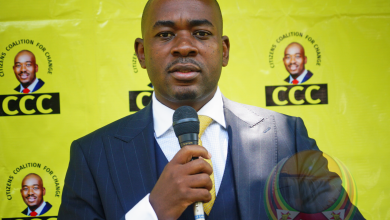Analysis: Kalimbwe’s Criticism of Zimbabwe’s Government – A Neocolonial Agenda?

Introduction
Joseph Kalimbwe, a prominent activist from Zambia, has been increasingly vocal in his criticism of the Zimbabwean government and its nationalist ideology. His attacks, primarily on social media, have raised questions about whether his animosity is genuinely personal or influenced by external forces with a neocolonial agenda.
Kalimbwe’s Criticisms
Kalimbwe’s social media activity includes numerous inflammatory remarks about the Zimbabwean government. He has disparaged Zimbabwe’s economic policies, describing the local currency as “the worst performing currency in the world” and criticized the country’s engagement policies with the West and Russia (HCNTimes.com) (Zimbabwe Situation). Kalimbwe’s comments often reflect a disdain for Zimbabwe’s sovereignty, suggesting that the country’s political and economic strategies are misguided.
The Neocolonial Context
The timing and nature of Kalimbwe’s statements align suspiciously with Western narratives about Zimbabwe. This pattern suggests that his remarks might be more than personal opinions but part of a broader strategy to undermine Zimbabwe’s national sovereignty. The Western agenda, which historically includes imposing economic sanctions and supporting opposition movements, aims to destabilize nationalist governments in favor of regimes more amenable to Western interests (Positive Eye News) (Nehanda Radio).
The Zambia Connection
Kalimbwe’s connections to the Zambian ruling party and his open support for Zimbabwe’s opposition leader Nelson Chamisa further complicate the picture. The United Party for National Development (UPND) in Zambia, led by President Hakainde Hichilema, has expressed solidarity with Zimbabwe’s opposition, suggesting a coordinated effort to challenge the Zimbabwean government. This alliance points to a strategic partnership aimed at regime change, supported by Western powers that have historically sought to influence African politics to serve their interests (Nehanda Radio).
Implications for Regional Stability
Kalimbwe’s actions have not only strained relations between Zimbabwe and Zambia but also threatened regional stability within the Southern African Development Community (SADC). His remarks about US military involvement in Zambia, including AFRICOM’s presence, have added fuel to the fire, provoking concerns about neocolonial military strategies in the region (Zimbabwe Situation). These tensions undermine efforts to foster unity and cooperation within SADC, essential for the collective economic and political stability of member states.
Conclusion
Joseph Kalimbwe’s relentless criticism of Zimbabwe, coupled with his ties to Zambia’s ruling party and the Western narrative, suggests that his animosity might be part of a larger, state-sponsored agenda. This neocolonial strategy aims to destabilize Zimbabwe’s nationalist government, creating a climate of uncertainty and division. Understanding these dynamics is crucial for addressing the root causes of regional tensions and fostering a more united and sovereign African continent.
This analytical piece aims to provide a nuanced understanding of the motivations behind Joseph Kalimbwe’s public remarks, placing them within the broader context of neocolonial strategies and regional politics.




